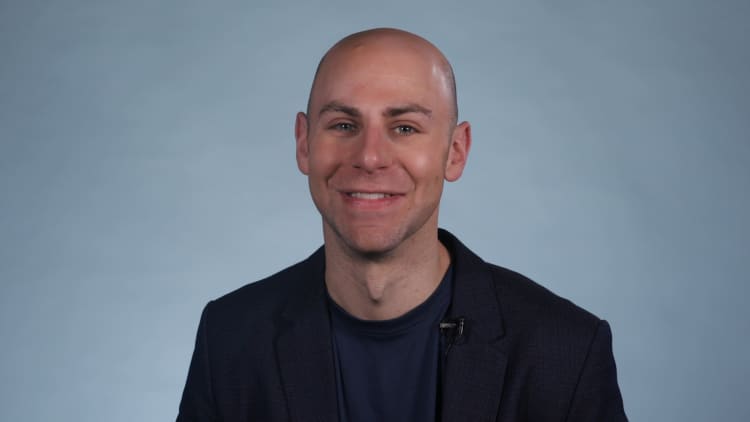You might think you don't need the seven to nine hours of sleep most experts recommend, but you probably do. Even if you're not yawning and nodding off, sleep deprivation might be playing havoc with your mood and emotions, and tanking your professional and personal relationships.
We're poor judges of our own fatigue, sleep expert Katharina Lederle tells CNBC Make It, and many choose to not to accept how sleep can impact productivity since they believe they can simply power through.
For many, though, understanding the surprising ways sleep impacts relationships and emotions can be a powerful catalyst for change. "It comes down to being open and receptive," she says.
Knowing the warning signs is an important first step to helping yourself or even someone else. Here are five science-backed signs you might need more sleep than you're getting, signs featured in Lederle's new book "Sleep Sense."
Sign #1: You're angry and frustrated
When you're sleep deprived, Lederle explains, you're less likely to ignore irrelevant information. Without the rest you need, you're more likely to focus on negatives and think in the short term. You could feel tense and frustrated and you might not understand why others don't feel the same way.
In fact, a new study finds that losing even just two hours of sleep a night can make you less able to adapt or cope with frustrating situations. It might even intensify negative feelings like anger.
Sign #2: You're not motivated
The less sleep you get, the more sluggish and unmotivated you'll feel. You might also be more likely to focus on quick wins rather than the big rewards that require sustained energy and effort. Some research shows the sleep deprived often choose less challenging tasks, so you might also fall short of goals you've set for yourself.
"Our motivation to get things done and to engage with others is diminished when we don't get enough sleep," writes Lederle.

Sign #3: You're more impulsive
Research from Clemson University found that the sleep deprived are more likely to make questionable decisions and give into their impulses.
When you're more impulsive, you might send an email you regret or say something out loud that you'd usually keep to yourself, notes Lederle.
You might not even care how your behavior is received, she says, kicking off a vicious cycle, since you're more likely to respond in hostile ways to the smallest slights, ones you might ignore if you were rested.
Sign #4: You're not quite yourself
Because you're so tired, healthy habits can fall to the wayside, including exercise and eating well. Now you're not only exhausted, you're also annoyed and disappointed in yourself, says Lederle, leading to isolation and feelings of inadequacy.
Without proper rest, you might also suffer memory issues and become quieter and withdrawn, some of the most important signs and symptoms of being tired or fatigued, writes Lederle.
Sign #5: You're not getting along with others
You might find that it's harder to appropriately engage with other people, from your partner to your friends or colleagues. As research from the University of California Berkeley has found, that's partly due to your diminished ability to correctly read others' facial expressions, perceive their emotions correctly and respond with empathy.
According to the study, even friendly and neutral faces seem threatening to those without proper rest, having critical implications for a wide range of workers, including medical staffers and police officers.
You might also find yourself blaming others, explains Lederle. Not getting enough sleep makes it harder to step back and see the full picture of any given situation. You might struggle to monitor your own emotional state, making it easier to blame others and more difficult to see your contribution to any given problem.
Additionally, when you're sleep-deprived, your objectivity "goes out the window," writes Lederle. You'll find yourself getting into more conflicts you can't resolve in positive ways since your lack of sleep has made it harder to process moods and emotions.
If you're not careful, she warns, you might risk ruining relationships or worse, your job.
Like this story? Subscribe to CNBC Make It on YouTube!
Don't miss:

